A. Background
I. Project Description
- The Federal Government of Nigeria (FGN) has received a loan from the African Development Bank (AfDB), International Fund for Agricultural Development (IFAD), and Islamic Development Bank (IsDB) to implement a seven-year AfDB/IFAD/IsDB-funded Special Agro-Industrial Processing Zone (SAPZ) Program in partnership with the State Governments and Private Investors in seven participating States and Federal Capital Territory (FCT).
- The total program cost is USD 538.05 million costing of USD 160 million by AfDB, USD 150 million by IsDB, USD 100 million by IFAD, USD 50 million by AGTF, USD 60 million by IGREENFIN, USD 2.04 million by FGN, and USD 16.01 by States Governments. The program entered into force on 19 September 2022 and received its IFAD first disbursement on 27 November 2023.
- The implementation of SAPZs is a major investment program of the Federal Government of Nigeria, driven by the Federal Ministry of Agriculture and Rural Development (FMARD) in collaboration with relevant Federal Ministries, Departments and Agencies (MDAs) to develop agro-processing clusters in areas of high agricultural production across the country. It is a strategic move to rapidly develop modern agro processing capacity to serve the vast and growing local market, create sustainable market for farmers and reduce postharvest losses of local agricultural produce and thereby create wealth for farmers, promote import substitution and create sustainable agriculture related jobs.
- The SAPZ is made up of two building blocks which include the Agricultural Transformation Centre (ATC) which is a community-based rural institution within the host community, supported with provision of quality production drivers for the production of feedstock and the Aggregation Centre (AC) for primary storage, and the Agro-Industrial Hub (AIH) equipped with desirable infrastructure to create modern agro-processing environment where secondary value addition will take place. The Agro-Industrial Processing hub (AIH) will draw its processing feedstock from the ATC where activities of the production clusters and aggregation centres are being coordinated.
- To fast-track the implementation of the SAPZ program in Kano, a pilot scheme was initiated in 2024. The pilot scheme provided support to 1 009 beneficiaries consisting of 500 smallholder farmers in Bagwai and 500 smallholder farmers in Kura LGAs of Kano State. The pilot covered 2 value chains namely rice and tomatoes benefiting 500 rice and 500 tomato farmers in addition to 9 lead farmers drawn altogether from 77 Famers’ Organizations (FOs). The program has successfully profiled 7 398 smallholder farmers, processors and marketers across 374 FOs in 9 clusters of Bagwai and Kura.
II. Project Objectives, expected results, and Targeting
- The overall objective of the SAPZ programme is to support the set-up of SAPZ in targeted states across the country, with the aim of facilitating the crowding-in of private investment into the sector both at the upstream and downstream axes of the value chains, which will generate sustainable income opportunities for vulnerable smallholders.
- Accordingly, the SAPZ programme will pursue a twofold development objective:
• Support the development of SAPZ in high food production areas to supply the domestic food market and create exportable surpluses (AfDB-led); and
• Capacitate smallholder farmers, small agro-processors and traders, and community-based service providers, including women and youth to take advantage of the market demand created by the SAPZ to sustainably enhance their income, household food security and resilience to climate change (IFAD-led). - The expected outcomes of the programme are: (i) the competitiveness and business environment of the Nigerian agriculture sector is improved through the provision of hard and soft infrastructure that would allow the crowding-in of private investment into the sector; (ii) incomes and food security of poor rural households engaged in agro-enterprises along the targeted value chains are enhanced on a sustainable basis; and (iii) dietary diversity of the target beneficiaries especially women of reproductive age is improved through food production, markets, climate resilience, income and women empowerment pathways.
- The program will be implemented in the FCT and 7 participating States namely Cross-River, Imo, Kaduna, Kano, Kwara, Ogun and Oyo. However, IFAD financing is covering Kano and Ogun States. In Kano, the program is targeting four value chains namely tomatoes, Rice, Groundnuts, and sesame, while in Ogun, the program is targeting cassava, rice, poultry and fisheries. Overall, the project will cover 24 Local Governments Areas (LGAs) with 16 in Kano and 8 in Ogun.
- The program with support 100 000 direct beneficiaries in Kano and Ogun corresponding to a total of 500 000 total household members. Of the 100 000 direct beneficiaries, 25 000 are expected to be smallholder farmers and value actors linked IFAD-supported VCDP program and are operating in the catchment areas of the SAPZs. Of the remaining 75 000 direct beneficiaries, 90% will be smallholder farmers/producers and 10% will be processors, traders, and community-based service providers.
- About 50% of the direct beneficiaries are expected to be women and 40% youth within the ages 18 to 29 years. To ensure social inclusion, the direct beneficiaries will include 5 000 Internally Displaced Persons (IDPs) and 100 Persons living with Disability (PwD) or households with a member/person living with disability.
Kindly download the below link for the more details please.

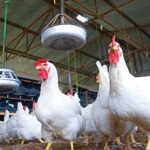
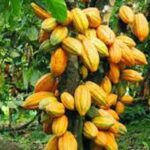
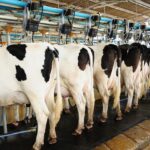
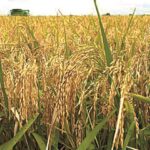
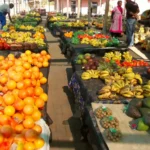
Recent Comments